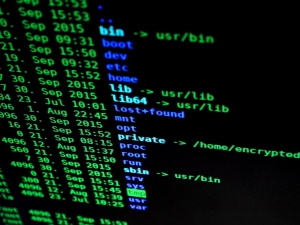Background
On Sept 7, 2017, Equifax announced they were victims of a security breach. In case you missed the news, you can learn all about it on our Company Blog page. Authorities have yet to settle their investigation and have already made the public aware of some of the risks facing them. As we mentioned on Monday, criminals can wait years before finally using your personal information illegally. Today, we are going to outline some of the steps you can take to protect yourself and your credit going forward.

Equifax has already stated that if you were one of the 100,000 Canadians affected, that they will reach you directly via mail. Criminals, claiming to be from Equifax, may try and reach you via phone or email. This is definitely a scam.
The company facing serious public backlash for how they handled the breach. Their new CEO immediately issued an apology for the hack and “bad customer service.” The company’s offer of 1 year complimentary credit monitoring and identity theft protection originally required those who opted-in to waive their right to legal recourse. Equifax has since clarified that the legal waiver only applied to the complimentary year, and not to preexisting issues including the hack.
Steps You Can Take
The first thing you should do is find out if you were affected by the breach. If you are Canadian, you will receive a letter in the mail. If you are in the U.S., Equifax has released a “Potential Impact tool.” The tool meant to measure the likelihood of your information being breached. It currently suffers from some technical difficulties due to high traffic, but no security concerns are currently present.
The company is offering of 1 year complimentary credit monitoring and identity theft protection. The offer is available to everyone, and not just those who were directly affected. While this is a useful tool, Travis Mills, President of identity theft recovery service LibertyID, told Digital Trends that those who’ve suffered stolen data shouldn’t count on the service as the sole means of protection.
What is currently being recommended is to sign up for a credit freeze. Equifax recently waived all fees on credit freezes for 30 days. Many third-party security experts say it’s he best pre-emptive response you can take towards identity theft.

Credit Freeze
A freeze will make it more complicated when you need to sign up for a new credit card, car finance, or any instance where your credit must be checked. It also becomes more complicated for anyone looking to use your identity to take out loans in your name. A credit freeze will bar anyone from opening a new line of credit in your name, unless they know a PIN number you specify.
You will need to put the freeze on with each of the major credit report companies — Equifax, Experian, Innovis and TransUnion — but it is a solid preventative step to stop the Equifax hack from affecting you too heavily.
Going forward, whether you were affected or not, you can never be completely sure that your information is entirely safe. This is why it is a good idea to make sure you are aware of your credit health. You can always send in a request for a free credit report to monitor your history on your own. Those currently affected may have to make due with the security products being currently offered. The Equifax hack should be a wake-up call. Now is the perfect opportunity to educate yourself on credit and start taking your credit history in your own hands.













